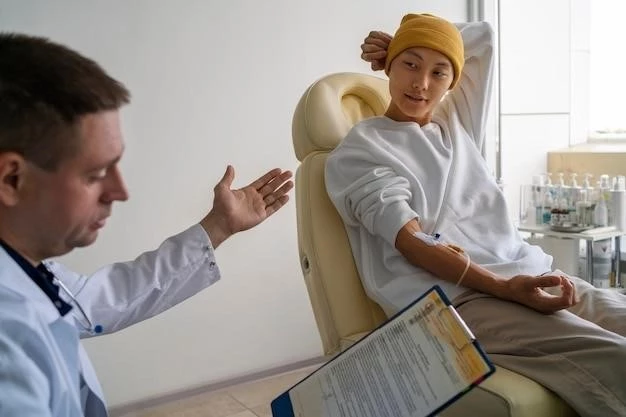Introduction to Myotubular Myopathy
Myotubular myopathy is a rare congenital muscle disease that primarily affects male babies, causing severe weakness and breathing difficulties․ Learn more below․
Definition and Overview
Myotubular myopathy, a rare genetic muscle disorder primarily affecting male infants, presents with severe muscle weakness, respiratory issues, and potential skeletal problems․ The disease is caused by mutations in the MTM1 gene, leading to significant morbidity and early mortality without intervention․ Genetic counseling, supportive care, and research on gene therapy are vital in managing this condition․
Causes and Inheritance
Myotubular myopathy is a rare genetic condition caused by mutations in the MTM1 gene, leading to severe muscle weakness and respiratory issues․ This disease follows an X-linked inheritance pattern, primarily affecting males․ Understanding the genetic basis is crucial for diagnosis and potential future treatments․
Genetic Mutation
Myotubular myopathy is primarily caused by mutations in the MTM1 gene, impacting the production of myotubularin, an essential enzyme for muscle development and function․ Understanding these genetic alterations is crucial for diagnosis and potential treatment strategies for individuals affected by this condition․
Symptoms and Clinical Presentation
Myotubular myopathy typically presents with severe muscle weakness, breathing difficulties, and even swallowing issues, primarily affecting male infants․ Understanding these symptoms is crucial for early diagnosis and management of the condition․
Muscle Weakness and Respiratory Distress
Individuals with myotubular myopathy commonly experience severe muscle weakness and respiratory distress, which can significantly impact daily life․ Seeking early medical intervention and ongoing respiratory support are crucial for improving quality of life and managing the symptoms associated with this condition․

Diagnosis and Testing
Diagnosing myotubular myopathy involves genetic testing to identify mutations in the MTM1 gene․ Muscle biopsies may also reveal characteristic features․ Early diagnosis is crucial for proper management and treatment strategies․ Seek medical advice for appropriate testing․
Muscle Biopsy and Genetic Testing
Diagnosis of myotubular myopathy often involves muscle biopsies to observe specific abnormalities in the muscle tissue, alongside genetic testing to identify mutations in the MTM1 gene․ Understanding the results of these tests is essential for confirming the disease and guiding appropriate treatment strategies․ Seeking guidance from healthcare professionals experienced in myotubular myopathy diagnosis is crucial for accurate assessment․
Treatment Options
Explore current therapeutic strategies for managing myotubular myopathy, including gene replacement therapy that has shown promising results in improving motor function and reducing ventilator dependence․ Stay informed about available treatment options by consulting with healthcare professionals and participating in clinical trials․
Current Therapeutic Strategies
Recent advancements in treating myotubular myopathy include gene replacement therapy, showing improvements in motor function and reducing ventilator dependence․ These therapies offer hope for enhancing the quality of life of individuals affected by this condition․ Stay informed about the latest developments and consult healthcare professionals for personalized treatment options․

Gene Therapy Research
Stay updated on the latest advancements in gene therapy research for myotubular myopathy, offering hope for improved outcomes in individuals affected by this condition․ Consult with experts and consider participating in clinical trials to access cutting-edge treatments․
Understanding the impact of myotubular myopathy on quality of life and the potential challenges associated with respiratory and skeletal issues is crucial for managing the condition effectively․ By seeking support from patient communities and advocacy groups, individuals and families can navigate the complexities of the disease and access valuable resources for care and information․
Prognosis and Life Expectancy
Understanding the impact of myotubular myopathy on quality of life and the potential challenges associated with respiratory and skeletal issues is crucial for managing the condition effectively․ By seeking support from patient communities and advocacy groups, individuals and families can navigate the complexities of the disease and access valuable resources for care and information․
Impact on Quality of Life
The profound muscle weakness and respiratory challenges associated with myotubular myopathy can significantly impact the quality of life for individuals affected by this condition․ Understanding and addressing these challenges through comprehensive care and support services is essential for enhancing well-being and managing daily activities effectively․ Seeking out patient communities and advocacy groups can provide valuable resources and emotional support to navigate the complexities of living with myotubular myopathy․
Support and Resources
Access valuable resources and support networks for myotubular myopathy through patient communities, advocacy groups, and informational websites․ Connecting with others facing similar challenges can provide emotional support, guidance, and opportunities to share experiences․
Patient Communities and Advocacy Groups
Engage with patient communities and advocacy groups focused on myotubular myopathy to access valuable support, information, and a community of individuals facing similar challenges․ Joining these groups can provide emotional support, expert advice, and opportunities to participate in awareness initiatives and research efforts aimed at advancing the understanding and management of this condition․
Clinical Trials and Research Studies
Stay informed about clinical trials and research studies related to myotubular myopathy․ Explore opportunities to participate in innovative trials for potential treatments and contribute to advancing the understanding and management of this condition․ Seek guidance from healthcare professionals for insights on the latest research developments․
Participation in Trials for Myotubular Myopathy
Engage with ongoing clinical trials and research studies focused on advancing treatment options for myotubular myopathy․ By considering participation in these trials, you can contribute to the development of potential therapies and gain access to innovative approaches for managing this condition․ Consult with your healthcare team to explore trial opportunities and discuss potential benefits and risks․
Complications and Associated Conditions
Learn about respiratory and skeletal issues associated with myotubular myopathy, common complications that may affect individuals with this condition․ Stay informed about potential challenges and seek appropriate medical assistance for comprehensive care․
Respiratory and Skeletal Issues
Myotubular myopathy is associated with significant respiratory weakness and skeletal problems such as hip dysplasia and spinal curvature․ Early recognition and appropriate management are essential to address these complications effectively and improve the quality of life for individuals living with the condition․ Seeking specialized care and support services can help in navigating these challenges and optimizing overall well-being․
Management of Myotubular Myopathy
Discover effective approaches for managing myotubular myopathy, a rare congenital muscle disorder that primarily affects male babies․ Seek guidance from healthcare professionals and leverage patient communities for comprehensive support and resources․
Multidisciplinary Approach to Care
Managing myotubular myopathy requires a multidisciplinary approach involving healthcare professionals specializing in neuromuscular disorders, respiratory therapists, physical therapists, and nutritionists․ Seeking comprehensive care tailored to individual needs can help optimize outcomes and maintain quality of life․ Engaging in regular evaluations and collaborating with a team of experts can ensure holistic management of the condition;
Future Directions in Treatment
Explore the promising advances in research and treatment options for myotubular myopathy, including gene therapy developments and innovative approaches aimed at improving outcomes and quality of life for individuals affected by this condition․ Stay informed and consult healthcare professionals for the latest updates on potential future treatments․
Promising Advances in Myotubular Myopathy Research
Recent research has shown promising advances in the treatment of myotubular myopathy, particularly in gene therapy developments targeting the MTM1 gene․ These advancements offer hope for improved outcomes and potential therapeutic options․ Stay informed about the progress in research and consult with healthcare providers to explore future treatment possibilities for this condition․
